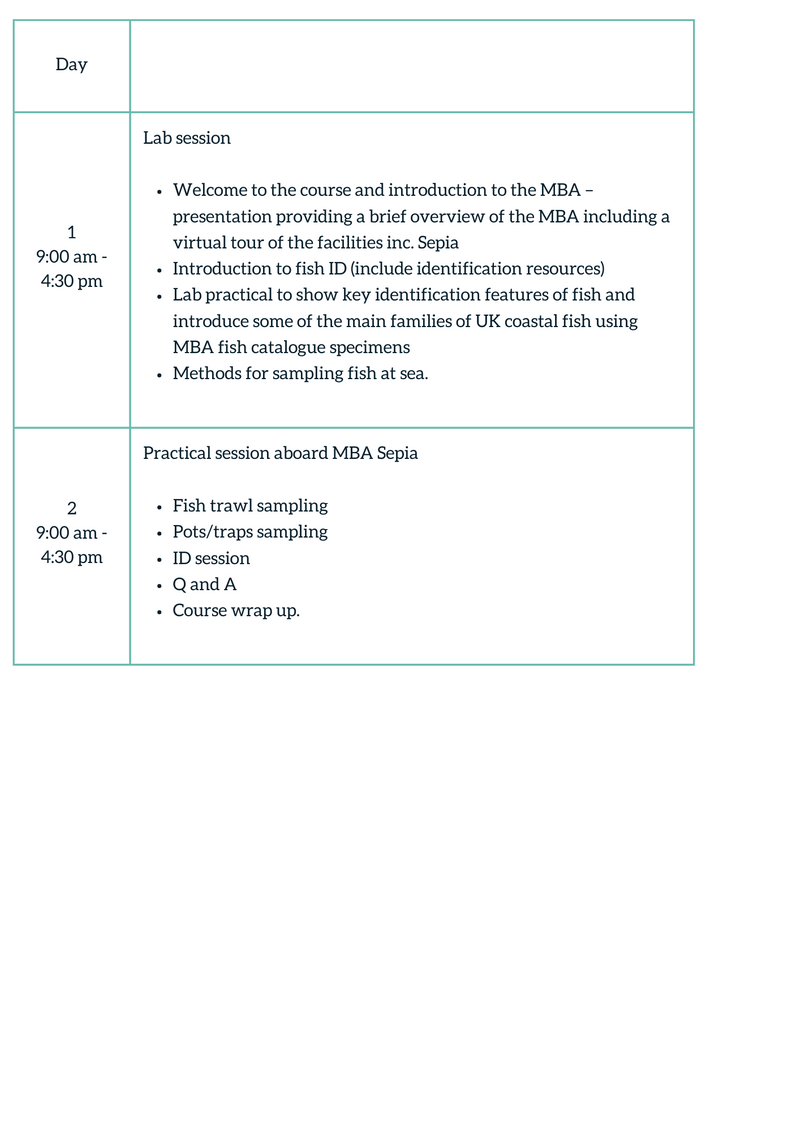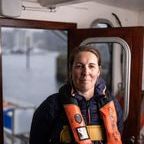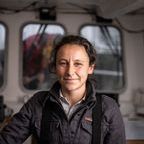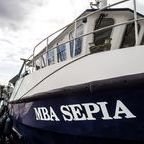*Please note all times are UK





Research Vessel Manager, The Marine Biological Association
Rachel is the MBA’s Research Vessels Manager and coordinates the MBA’s long-term demersal fish monitoring programme, which first began in 1911. She has extensive experience carrying out marine monitoring and baseline surveys in both the UK and abroad, projects have included; assessments of small-scale commercial fishing activity in the eastern Pacific, monitoring bycatch of marine vertebrates in Guatemalan commercial fisheries, data collection for stock assessment of UK commercial fisheries, and fishing gear selectivity trials. She provides technical expertise on field identification of marine fish and currently contributes to the Fish biodiversity subgroup, part of the Healthy and Biologically Diverse Seas Evidence Group (HBDSEG).
Sea-going Research Technician, Marine Biological Association
Frankie is the Seagoing Research Technician on the RV MBA Sepia and has expertise in the deployment of scientific equipment from marine platforms to gain high quality biological, ecological and oceanographic data for research purposes. Prior joining the Marine Biological Association Frankie worked at the British Antarctic Survey as a post-doctoral research assistant analysing fisheries time-series data. Frankie has a PhD from the University of Southampton investigating long-term trends in Antarctic krill recruitment dynamics. In addition to this she has worked as a scientific diver and ecological consultant for both private businesses and government agencies.
The Marine Biological Association's, Research Vessel
The MBA’s Research Vessels (RV’s) have supported MBA’s research at sea since 1896. They have been integral to supporting MBA’s long-term investigations carried out in the Western English Channel ecosystem, monitoring a range of marine life from phytoplankton to large vertebrates. The MBA's Research Vessels (RVs) team delivers a wide range of educational and outreach activities and has longstanding relationships with both University of Plymouth and University of Liverpool, supporting and delivering practical field weeks for their marine biology students. The team leads MBA’s long-term demersal fish and zooplankton monitoring programmes that contribute to the Western Channel Observatory, which includes managing and contributing these important datasets to national data centres including The Marine Environmental Data and Information Network (MEDIN) and British Oceanographic Data Centre (BODC). The team has proven excellence in species identification and since 2018 has participated in the NE Atlantic Marine Biological Analytical Quality Control Scheme (NMBAQC) Fish Reverse Ring Test (FRRT) - the quality assurance scheme for laboratories engaged in the production of marine biological data.
:
@mba_rv
Please accept {{cookieConsents}} cookies to view this content